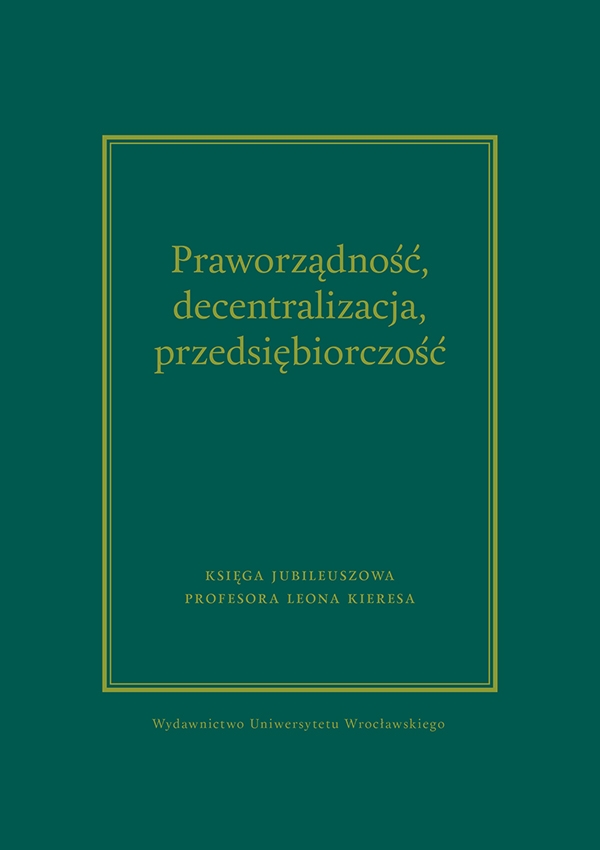

PRZEDSIĘBIORCZOŚĆ

CONCEPT OF THE INTERVENTIONISM LAW
The author proposes that the division of law into sections should also distinguish the interventionism law. This includes legal regulations regarding the scope, forms and methods of impact of international organizations, EU institutions and national authorities on processes related to the economy, especially its development and functioning in the market system and in the conditions of globalization, internationalization and economic integration of modern states. In order to justify its proposal, the author points out that modern interventionism is no longer limited to traditional state interventionism, but it is exercised by international organizations and the European Union in relation to the Member States. All entities carrying out the functions of interventionism do so on the basis of law. From the point of view of the EU Member State, these are regulations complementing each other and forming a whole as a source of applicable law. The author does not propose any codification procedures in the field of interventionism law. He claims, however, that the national legislator should create, control, interpret and apply the national law of intervention, taking into account the fact that there are regulations inherent in the international and EU law of interventionism.
In addition, the author indicates the need for a different approach to interventionism in scientific research and didactics. In this regard, he sees the need to change the organization of scientific research on the subject of interventionism in its legal aspect. He puts on interdisciplinary research with the participation of many specialists. In didactics, he proposes adjustments in economics curricula for lawyers and in legal discipline programs. In particular, it is about introducing the subject of contemporary interventionism and problems related to its legal basis and the boundaries and legal forms of its functions.